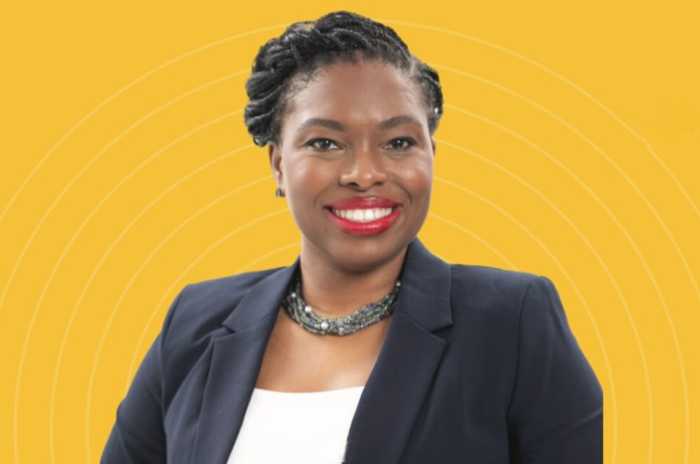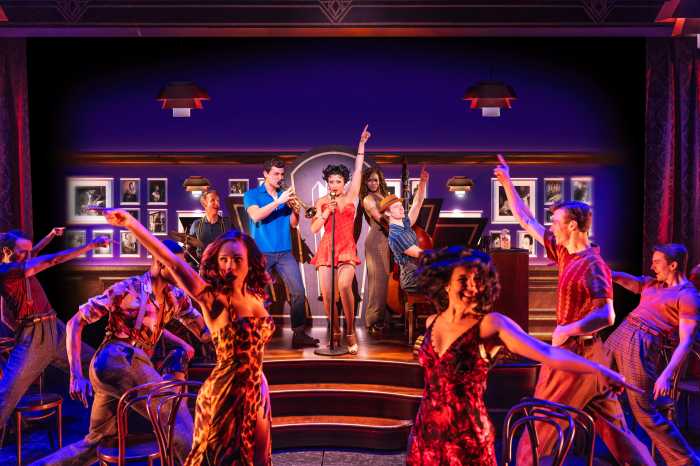By loretta campbell
In Neil Simon’s “Brighton Beach Memoirs,” to be presented at Queens Theatre in the Park from Nov. 30 through Dec. 9 in an Equity production directed by Robert Moss, it is 1937.
Undaunted by the Depression, 15-year old Eugene Jerome shares with us his life coping with an extended family of Eastern European Jewish immigrants, his budding sexual interest, and writing. To Eugene, his working-class neighborhood of Brighton Beach in Brooklyn — which is now home to a more recent wave of Russian Jewish immigrants — is the world.
He plans to be a Yankee pitcher, as soon as he can find the right Italian name. He thinks it should be “Joe…or Tony…or Frankie…If only I was born Italian…All the best Yankees are Italian…My mother makes spaghetti with ketchup, what chance do I have?”
But if the career with the Yankees doesn’t happen, he plans to be a writer. In fact, he is writing his autobiography at every opportunity. (It doesn’t take any uncanny perception to realize that Eugene is Neil Simon as a teen).
Eugene feverishly writes down everything, from how much he hates liver to how much he wants a new pair of sneakers. According to him, the liver that his mother cooks is so tough that it will take him days to chew it. His sneakers are so worn that he is holding them together with a tiny piece of rubber. Or so, he says to his beloved father, Jack.
The elder Jerome is the main breadwinner, supporting (with two jobs) a family of seven. This includes his wife, two sons, a sister-in-law and two nieces. While helping Jack carry a quite heavy samples box, Eugene realizes the toll that overwork has taken on his father’s health. “I don’t know how he does it. King Kong couldn’t lift these…” Minutes later, Eugene tells his mother that Jack is clutching his chest.
Simon portrays Jack as a kind man with an unwavering commitment to his family. He has strong principles. One of these is to protect the less fortunate, even as he’s struggling himself in Depression-era New York. He teaches these values to his sons.
In one scene, Stanley, Eugene’s older brother, nearly gets fired because he defends a black man unfairly treated by the dictatorial boss. Stanley knows that the family needs his salary — desperately. But equally important are the ethics that his father has taught him. Taking Jack’s advice, Stanley makes his own decision about the job.
Blanche, Jack’s sister-in-law, is looking for work, but her asthma makes her unemployable. She is also a widow with two teenage girls, Nora and Laurie. It’s clear that her family places a financial strain on the Jeromes. However, it is something they are willing to bear because they love Blanche and her daughters. Further, the Jeromes plan to shelter their Polish cousins who are escaping from the Nazis.
Eugene has a different kind of concern about his kinfolk. Once he discovers that his beautiful cousin Nora has breasts, his imagination festers. At dinner, he constantly drops his napkin, so he can look up her skirt. Then he learns that his brother has figured out a way to spy on Nora when she showers.
Eugene: “You’ve seen Nora naked?”
Stanley: “Lots of times. I fixed the lock on the bathroom door, then opened it pretending I didn’t know anyone was in there.”
Eugene: “I can’t believe it. What a pig!…What did she look like?”
in other scenes, the two brothers have a frank discussion about the complexities of puberty. What makes this and all the scenes in this play so delightful is Eugene’s self-absorbed viewpoint. Basically, all he knows is that he is either in trouble (for some small infraction) or somebody else is causing a problem. Simon has captured Eugene’s confusion and delusion about adolescence perfectly.
Although the humor in “Brighton Beach Memoirs” is gentler than his other plays, it is more evocative. Here, one is reminded of his own coming of age: the first crush, the parents’ (imagined) insensitivity, and all the rest of it.
The play makes revisiting those awkward years fun even comfortable.
The production opens at 8 p.m. Friday, Nov. 8 at QTP. For reservations, tickets, or further information, call 718-760-0064.



































